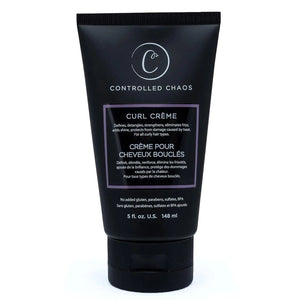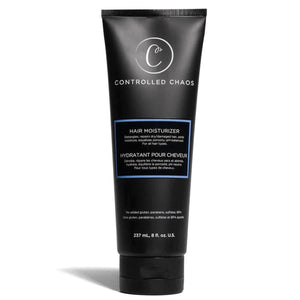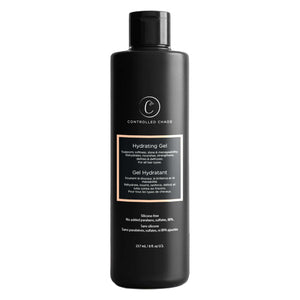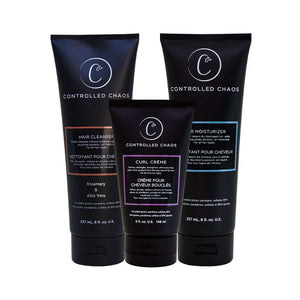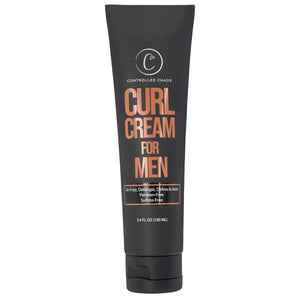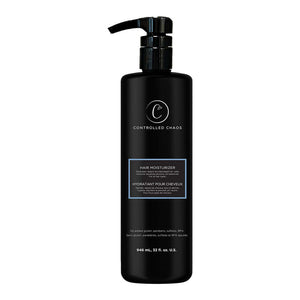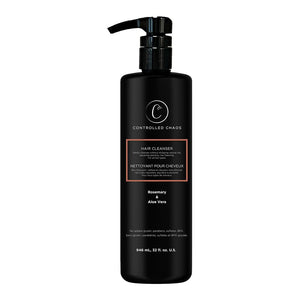

Curly hair can be a beautiful and unique feature, but it also comes with challenges. From frizz to tangles, curly hair requires special care and attention to look its best. In this blog, we'll explore some common curly hair problems and provide tips and solutions for overcoming them.
Frizz:
One of the most common issues that people with curly hair face is frizz. Frizz occurs when the hair cuticle is raised, allowing moisture to enter and causing the hair to become dry and frizzy. To combat frizz, keeping your hair hydrated and moisturized is essential. Use a moisturizing shampoo and conditioner specifically designed for curly hair, and consider incorporating a leave-in conditioner or hair oil into your routine to help seal moisture into the hair shaft.
Dryness:
Curly hair tends to be drier than straight hair because the natural oils produced by the scalp have a more challenging time traveling down the length of the hair shaft due to twists and turns. Avoid overwashing your hair to combat dryness, as this can strip away natural oils. Instead, try washing your hair every 2-3 days and using a sulfate-free shampoo and conditioner to help retain moisture. Additionally, consider using a deep conditioning treatment once a week to nourish and hydrate your curls.
Tangles:
Tangles are another common issue for people with curly hair, especially those with tighter curls or coils. To prevent tangles, keeping your hair well-moisturized and detangled regularly is essential. Use a wide-tooth comb or your fingers to gently detangle your hair while it's wet and coated with conditioner. You can also try using a detangling spray or cream to loosen knots and make combing easier.
Shrinkage:
Shrinkage is a natural property of curly hair, where the curls appear shorter than they are due to the coils contracting. While shrinkage can be frustrating, especially for those who desire length, it is important to embrace and work with your hair's natural texture. To minimize shrinkage, try stretching your curls while wet by gently pulling them downward or using techniques such as twist-outs or braid-outs to elongate them.
Lack of Definition:
Some people with curly hair struggle with achieving definition and bounce in their curls. Try using styling products specifically formulated for curly hair, such as curl-enhancing creams or gels to enhance curl definition. Apply the product to damp hair, then use a diffuser attachment on your blow dryer or air dry your hair to help set the curls and reduce frizz. You can also try finger coiling or shingling techniques to encourage curl formation and definition.
Humidity:
Humidity can be both a blessing and a curse for curly hair. While some people find humidity enhances their curls, others struggle with excessive frizz and puffiness. To combat the effects of humidity on curly hair, it's essential to use products that help seal the hair cuticle and protect against moisture. Look for anti-humidity styling products, such as serums or creams, that provide a barrier against the elements. Additionally, consider using a silk or satin scarf or pillowcase to help prevent frizz while you sleep.
Heat Damage:
Many people with curly hair use heat-styling tools such as flat irons or curling wands to achieve a particular look. However, excessive heat styling can cause damage to curly hair, leading to dryness, breakage, and loss of curl pattern. To minimize heat damage, limit the use of heat styling tools and opt for heat-free styling methods whenever possible. When using heat styling tools, always apply a heat protectant spray or serum to protect your hair from damage, and use the lowest heat setting necessary to achieve your desired style.
Product Build-Up:
Curly hair tends to be more prone to product build-up, which can weigh down the hair and lead to dullness and lack of volume. To prevent product build-up, clarifying your hair regularly is essential to remove any residue left behind by styling products. Use a clarifying shampoo once a month to deep clean your hair and scalp, or consider using a DIY clarifying treatment using ingredients such as apple cider vinegar or baking soda. Additionally, be mindful of the amount of product you use and avoid applying too much to prevent build-up.
Lack of Haircut Options:
Finding the right curly haircut can be challenging, as not all haircuts are suitable for curly textures. Many people with curly hair need help finding stylists experienced in cutting and styling curly hair, leading to limited haircut options. To overcome this challenge, look for a stylist specializing in curly hair or someone with experience working with curly textures. They can help you find a haircut that complements your curls and works with your natural texture, whether layered, deva, or tapered afro.
Embracing Your Natural Texture:
The biggest challenge for many people with curly hair is learning to embrace and love their natural texture. Society often promotes a standard of beauty that prioritizes straight hair, leading many people with curly hair to feel insecure or self-conscious about their natural curls. However, curly hair is beautiful, unique, and versatile, and learning to embrace and celebrate your natural texture can be empowering. Surround yourself with positive images and role models with curly hair, experiment with different styles and techniques, and remember that your curls make you uniquely beautiful.
Conclusion:
While curly hair may present challenges, from frizz to humidity to finding the right haircut, you can overcome these obstacles and embrace the beauty of your natural curls with the proper care and mindset. Addressing common curly hair problems and implementing practical solutions can keep your curls healthy, vibrant, and beautiful. Remember to be patient and experiment with different products and techniques to find what works best for your hair type, and most importantly, learn to love and celebrate your natural texture.
FAQS
How to care for curly hair?
To care for curly hair, use a moisturizing shampoo and conditioner, detangle gently with a wide-tooth comb, apply a leave-in conditioner, and avoid overwashing to retain natural oils.
What are some common problems associated with curly hair?
Common problems with curly hair include frizz, dryness, tangles, shrinkage, lack of definition, and difficulty finding suitable haircuts.
How can I tell if my curly hair is healthy or experiencing issues?
You can tell if your curly hair is healthy by assessing its moisture level, elasticity, and overall appearance. Healthy curls are well-hydrated, bouncy, and have a defined curl pattern.
What environmental factors can exacerbate curly hair problems?
Environmental factors such as humidity, extreme heat or cold, wind, and pollution can exacerbate curly hair problems by causing frizz, dryness, and lack of definition.
How can I prevent or minimize frizz in my curly hair?
To prevent or minimize frizz in curly hair, use products specifically formulated for curly hair, such as anti-frizz serums or creams, avoid towel-drying vigorously, use a microfiber towel or cotton t-shirt to blot excess water, and consider using a diffuser attachment on your blow dryer.
Can using heat styling tools worsen curly hair problems?
Yes, using heat styling tools such as flat irons or curling wands can worsen curly hair problems by causing heat damage, dryness, and loss of curl pattern. To protect your curls, it's important to use heat protectant products and minimize the use of heat styling tools.

